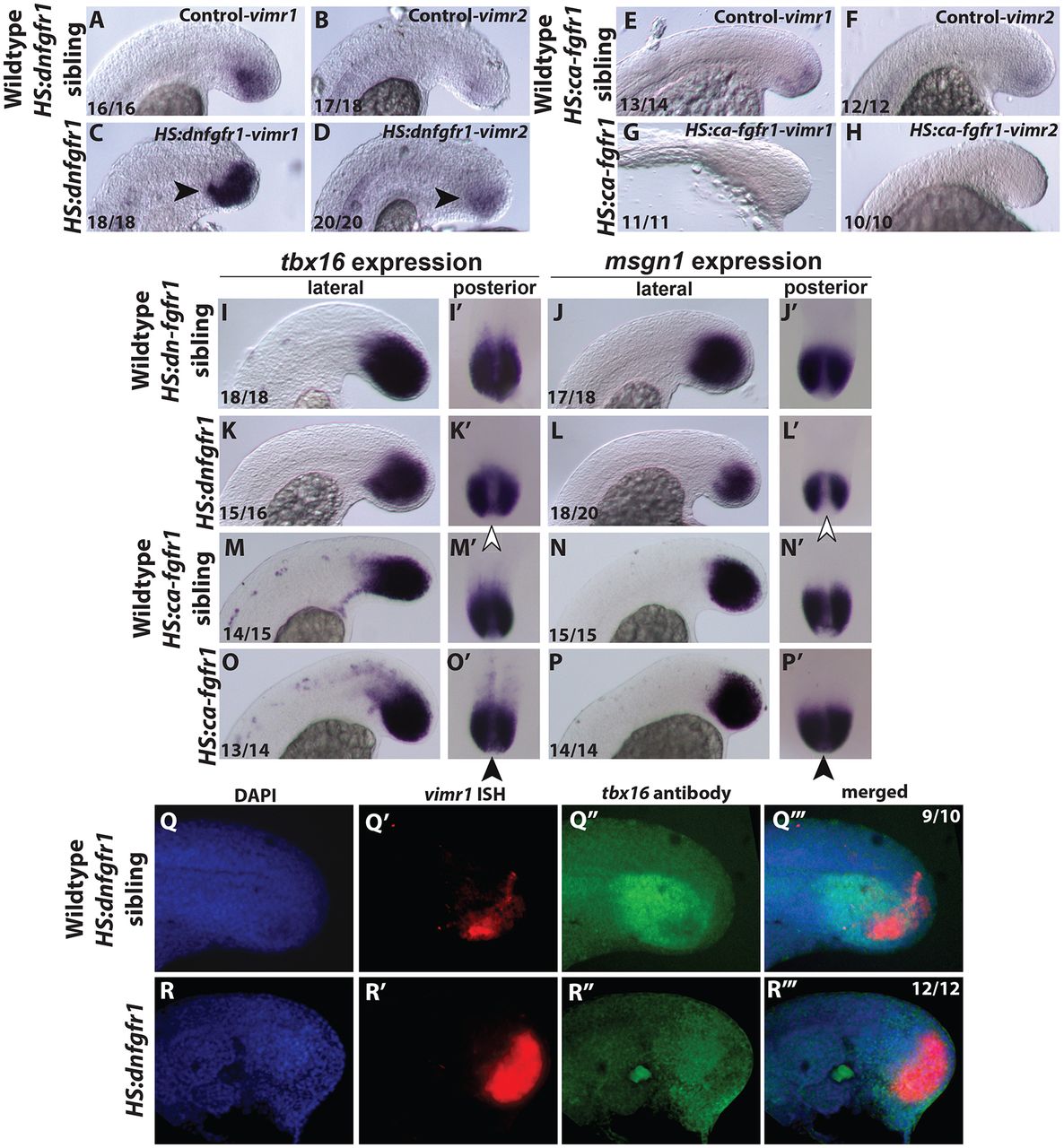Fig. 3
FGF is required for EMT termination during tailbud mesoderm formation. (A-H) The expression of vimr1 and vimr2 was examined at the 20-somite stage in HS:dnfgfr1 embryos (C,D) and their wild-type siblings (A,B) that were heat shocked at the 12-somite stage, as well as in HS:cafgfr1 embryos (G,H) and their wild-type siblings (E,F). Expression of vimr1 and vimr2 is increased in loss of FGF function embryos (C,D, arrowheads) and decreased in gain of FGF function embryos (G,H). (I-P′)The expression of tbx16 and msgn1 decreases in FGF-inhibited tailbuds (K-L′) as compared with sibling controls (I-J′). Conversely, expression of tbx16 and msgn1 increases in FGF-overactivation embryos (O-P′) compared with their wild-type controls (M-N′). White arrowheads (K′,L′; dorsal view) indicate loss of expression at the tip and midline of the tailbud. Black arrowheads (O′,P′; dorsal view) indicate ectopic expression at the tip and midline of the tailbud. (Q-R‴) Co-expression of vimr1 and Tbx16 was examined in 20-somite stage wild-type (Q-Q‴) and HS:dnfgfr1 (R-R‴) embryos that were heat shocked at 12 somites. FGF inhibition increases the expression of vimr1 while reducing the expression domain of Tbx16 (compare Q′,Q″ with R′,R″). All tailbud images are lateral views except where indicated.

